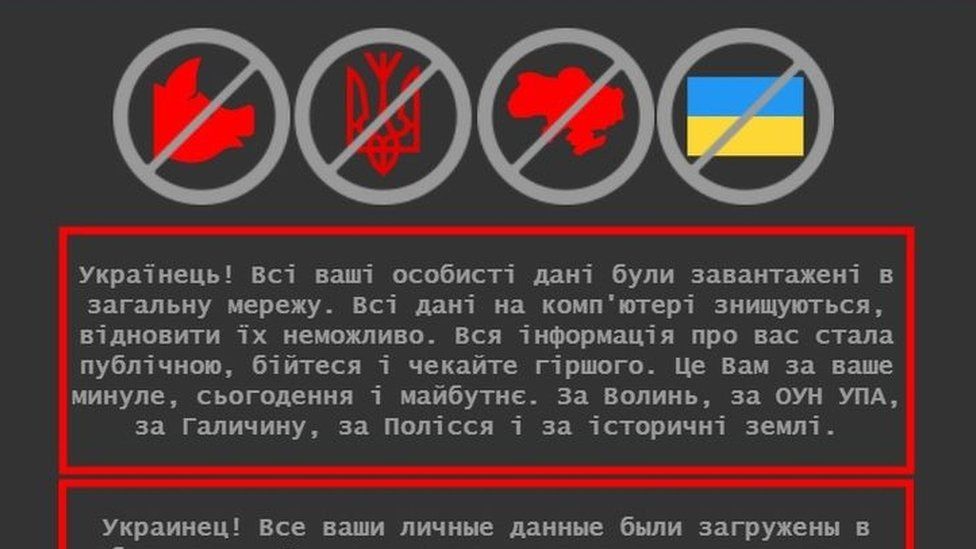The Polish government has raised its cybersecurity threat level in response to an attack on neighbouring Ukraine last week and amid escalating tensions with Russia. Poland’s prime minister, Mateusz Morawiecki, today hit out against the Kremlin’s “neo-imperialist policy”.
Morawiecki yesterday signed an ordinance introducing the so-called ALFA-CRP alert level across the country. That is the lowest of four alert levels available to the government under anti-terrorism legislation introduced in 2016.
It obliges the authorities to conduct “increased monitoring of the security of ICT systems” and to check for breaches of digital communications. Any suspicious activity should be reported to the police.
The alert level, which will be in force from today until the end of Sunday, comes after around 70 Ukrainian state websites, including those of several ministries, were hit by a large-scale cyberattack last week.
The Polish prime minister’s office notes that, during the attack, access was cut off to Ukraine’s Diia platform, which is the equivalent of Poland’s mObywatel documents application. It noted that malware which wipes data was also deployed.
Therefore, “to ensure Poland’s security, the government is taking precautionary measures”, said the prime minister’s office, noting it had consulted the decision with the Critical Incidents Team at the Government Centre for Security, as well the interior ministry and Internal Security Agency (ABW).
The same alert level was also recently introduced during the United Nations Digitial Summit that took place in the Polish city of Katowice between 6 and 10 December. The subsequent three alarm levels are BRAVO, CHARLIE and DELTA.
Poland has repeatedly warned that Russia has been mounting hybrid attacks westward, which, as well as online measures, also include applying pressure through its clout in energy markets and orchestrating a migration crisis on the border with Belarus last year.
Speaking today alongside his Latvian counterpart, Arturs Krišjānis Kariņš, Morawiecki warned of the “neo-imperialist policy of Russia” and called for a “decisive” response to “gas blackmail” and the military threat emerging towards Ukraine.
“There can be no concessions on the part of NATO to the threats and blackmail used by Russia,” said Morawiecki on Wednesday morning.
Russian military forces and hardware have begun arriving in Belarus for drills to be held near the borders with Poland, Lithuania and Ukraine https://t.co/agD6stKB4z
— Notes from Poland 🇵🇱 (@notesfrompoland) January 18, 2022

Maria Wilczek is deputy editor of Notes from Poland. She is a regular writer for The Times, The Economist and Al Jazeera English, and has also featured in Foreign Policy, Politico Europe, The Spectator and Gazeta Wyborcza.




















